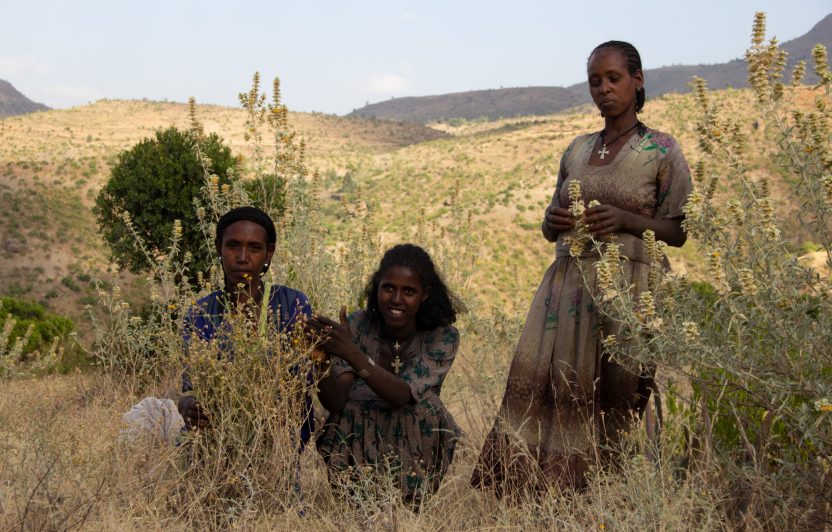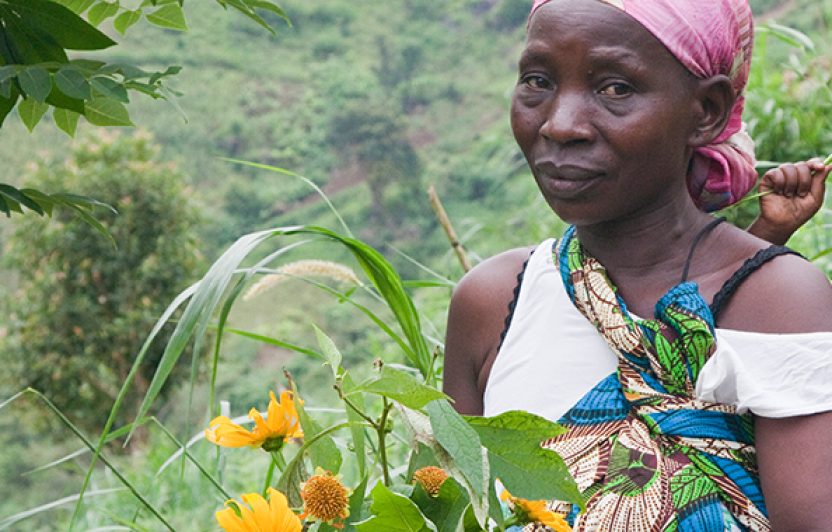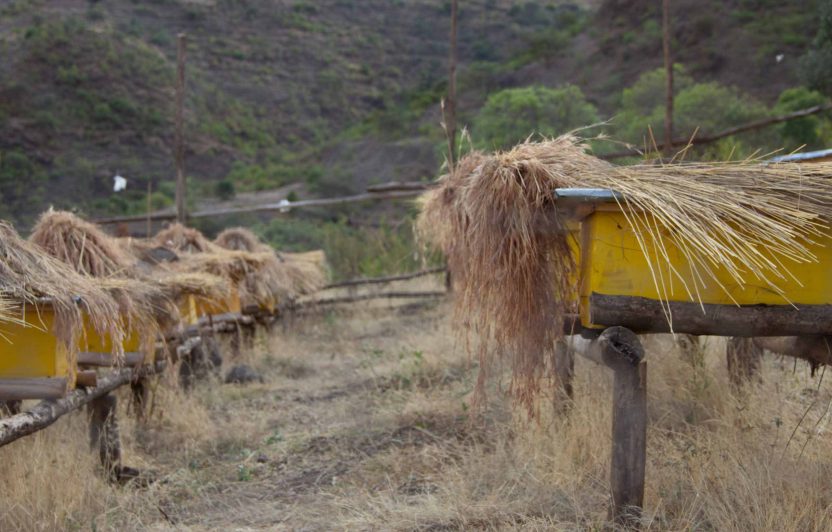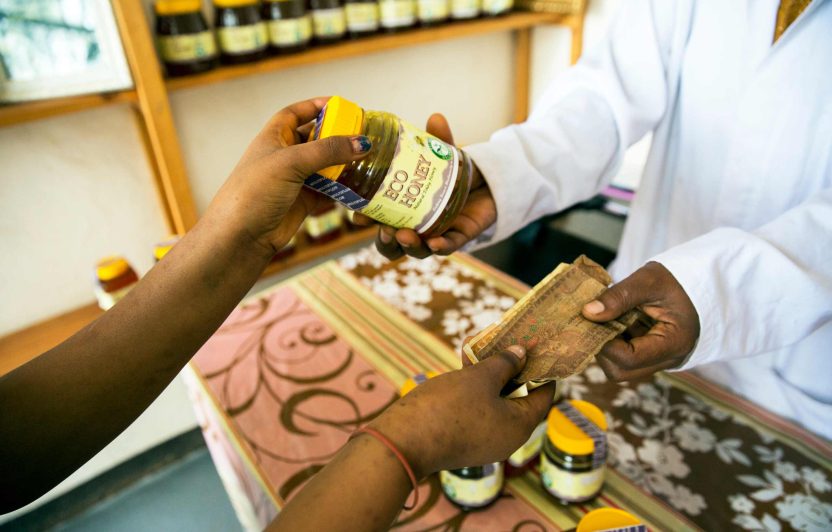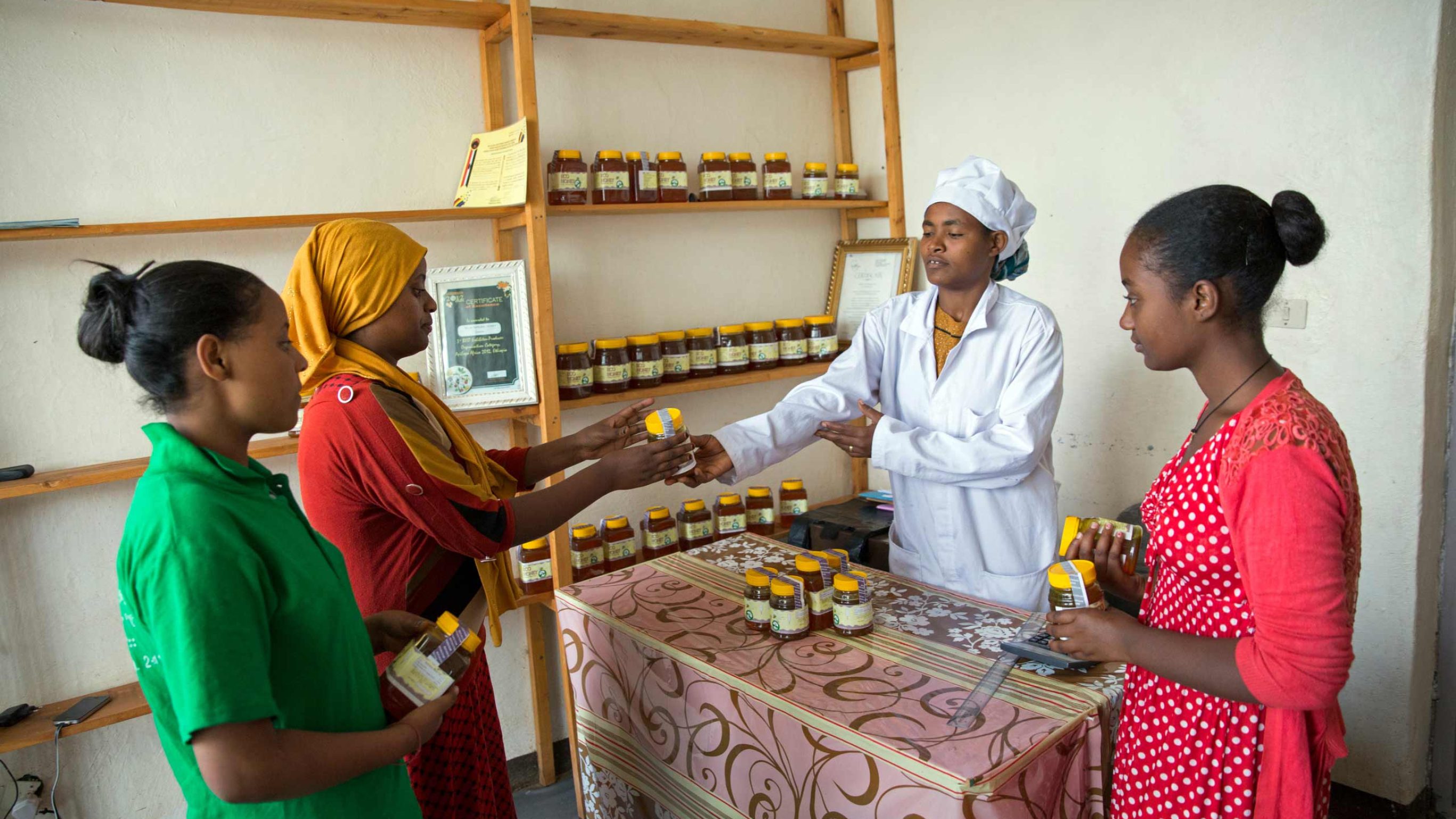


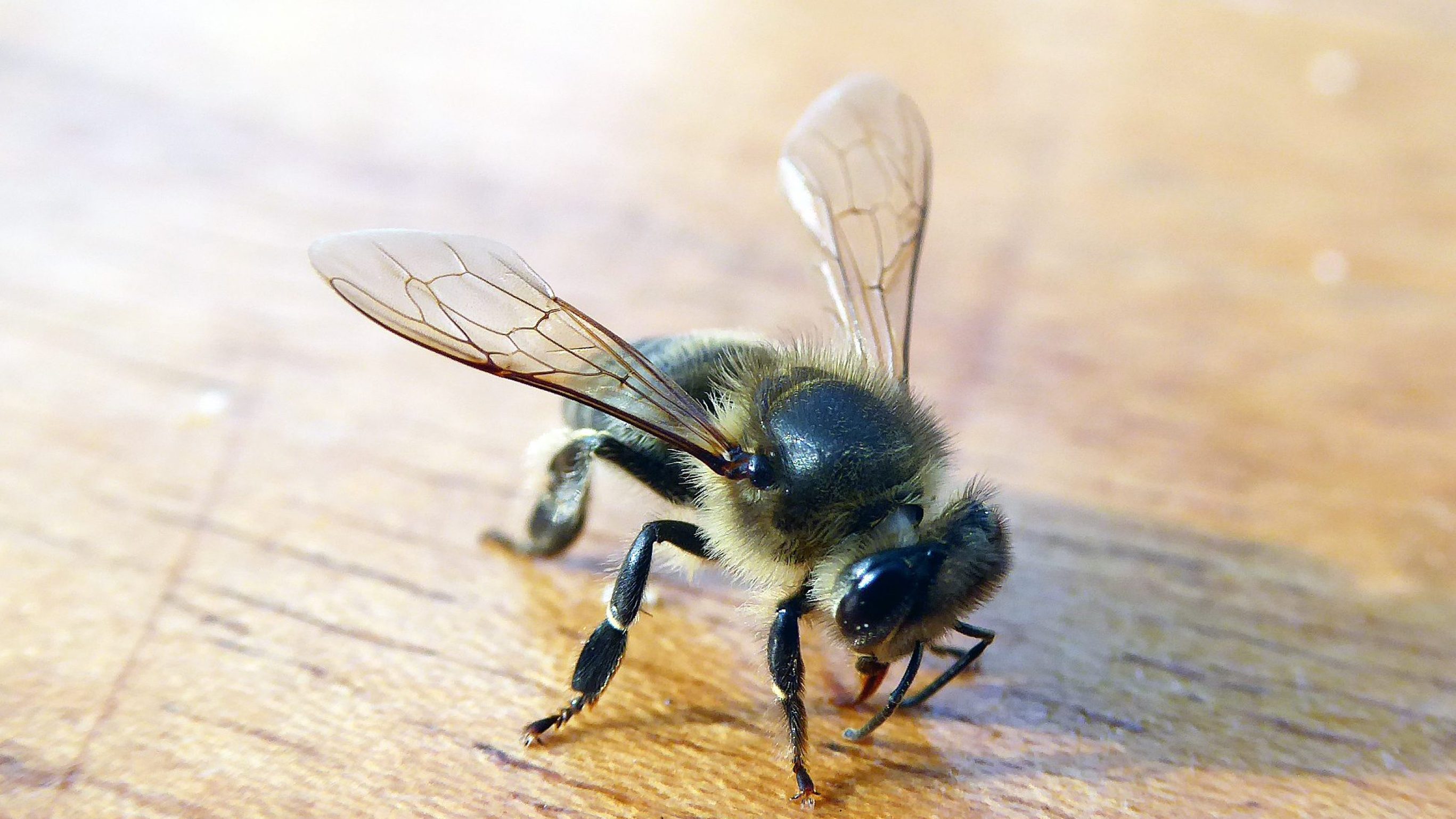

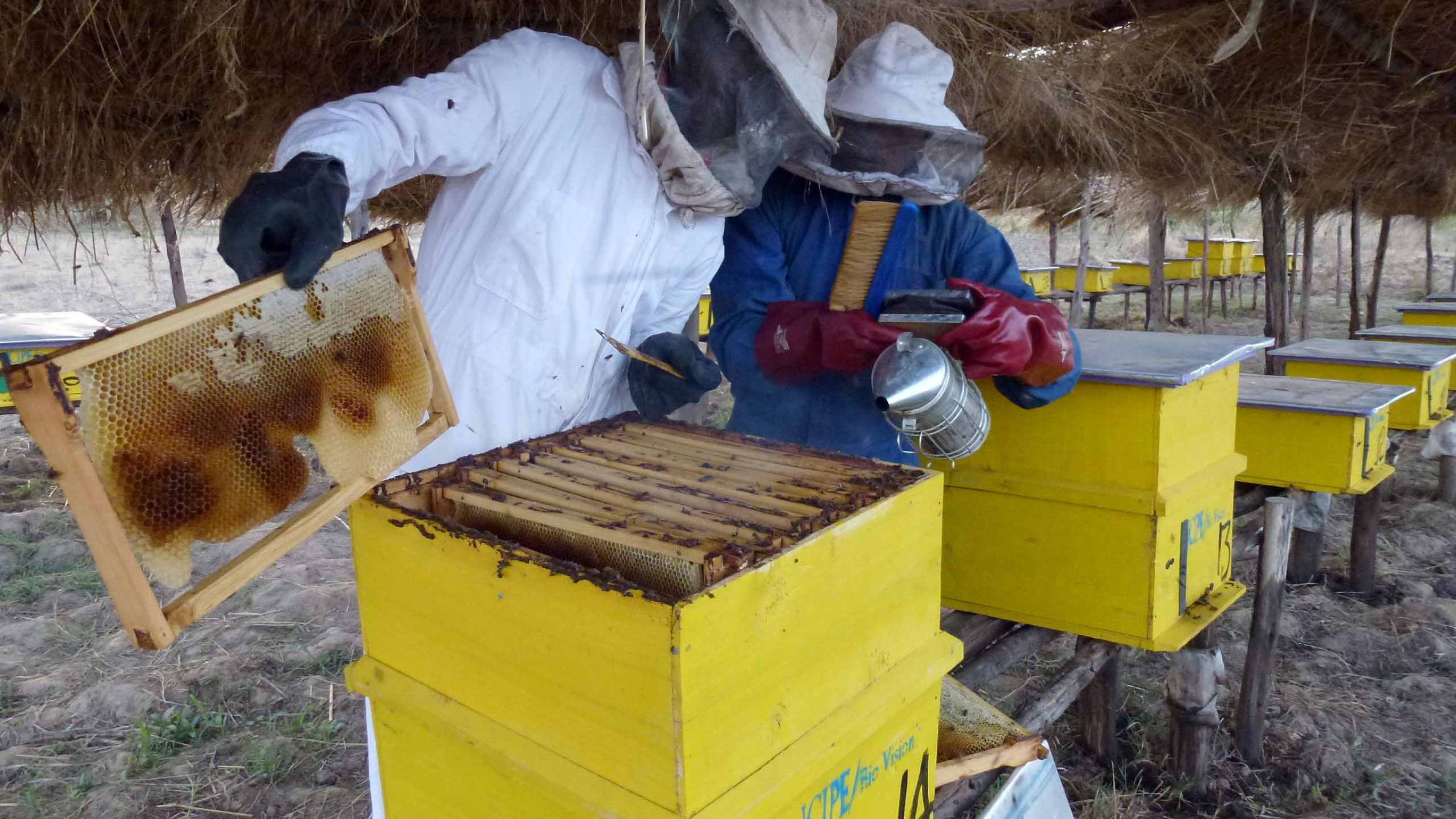


Demand for honey is extremely high in East Africa and can be sold for a good price. Many smallholders in Tolay (Ethiopia) have been aware of this since at least 2011 as over the last 7 years, Biovision has trained more than 1,000 people in this remote region in modern beekeeping techniques. Simple beehives instead of baskets or hollow tree trunks combined with the use of smokers and hand-operated centrifuges are now the norm in Tolay. They allow the beekeepers to produce pure, organic honey. Biovision has also provided trainees with information on marketing their honey.
Modern methods benefit not just the bees
Training in modern beekeeping benefits humans, bees and the environment; traditional beekeepers used open fires to harvest the honey, giving it a strong smoky taste. It also destroyed entire bee colonies and often caused bush fires. In addition, women were not allowed to climb trees and so were excluded from honey production. In contrast, the use of modern beehives allows the work to be done standing up and at present 35% of those participating in the Biovision project are women.
Tolay is alive with the buzz of bees; millions of honey bees live in the region, where they also pollinate the crops and so secure the food supplies and incomes of some 20,000 people. In 2017 alone, more than 29 tonnes of honey was sold through the Union.
Success and next steps
In 2016, the MasterCard Foundation visited the project. It was so impressed by the approach adopted in the Tolay project that it is now providing funding worth US$ 10.35 million to Biovision’s local partner icipe (the international insect research centre) so that modern beekeeping methods can be introduced throughout the country. The aim is to create 12,500 jobs for unemployed youngsters.
The project in Tolay is now self-supporting and the beekeepers sell their products through the Honey Union. Information on modern beekeeping is being disseminated through cooperatives and discussions are underway about the creation of new synergies relating to sales and promotional channels.
This project was concluded at the end of 2017 and experience from it is feeding into a new project that started this year in the Wag Himra Zone of Northern Ethiopia. The latter will focus on the development of new start-ups for the production and marketing of honey in this remote mountainous area together with the planting of an all-season bee meadow.
Bees provide a crucial service to agriculture and ecosystems as they also pollinate human food crops and so are worthy of our particular attention and protection. A healthy, stable bee population is absolutely essential for agricultural production and global food supplies.


